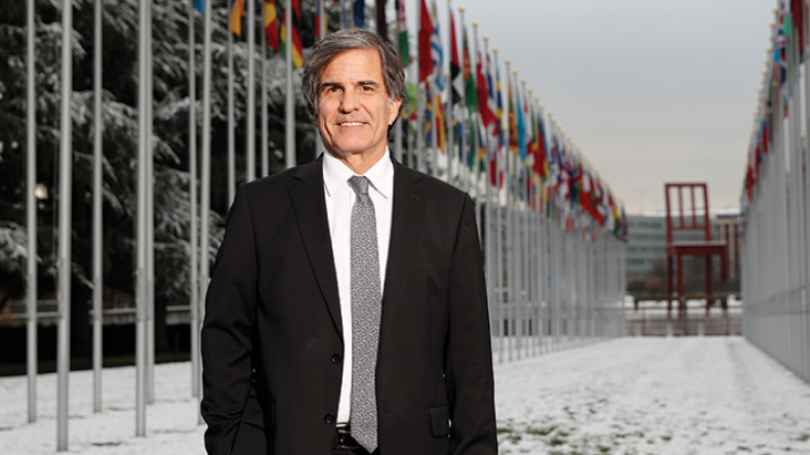
- About
- Education
- Research
- Engagement & Collaboration
- News & Events
Back to Top Nav
Back to Top Nav
Back to Top Nav
Back to Top Nav
I recently had the privilege of speaking with Scott Foster ‘79, a Dartmouth alum and the current head of the Sustainable Energy Division of the United Nations Economic Commission (UNEC).
I recently had the privilege of speaking with Scott Foster ‘79, a Dartmouth alum and the current head of the Sustainable Energy Division of the United Nations Economic Commission (UNEC). Scott was a Classics and Biology double major at Dartmouth College and found his way into the energy sector after working in energy and environmental consulting, pursuing a degree in civil engineering and completing an MBA.
Scott and I began by discussing 2030 Sustainable Development Goal (SDG) #7: “Affordable and Clean Energy”. The SDGs were developed by the United Nations with the hopes of ending poverty, protecting the planet, and ensuring peace and prosperity for all. Together, the 17 goals that comprise the 2030 Agenda for Sustainable Development recognize that achieving this ambitious vision will require numerous improvements in health, education, reduction of inequality, and more. Additionally, the SDGs tackle climate change and work to preserve the globe’s oceans and forests. In particular, SDG #7 aims to increase universal access to affordable, reliable and modern energy services, increase the share of renewable energy in the global mix and double the rate of improvements in energy efficiency.
Scott emphasized the importance of individual actions and the potential of grassroots organizations in helping society reach these energy goals. Governments certainly have the power to enact energy policy, but individuals and non-state actors have enormous power as well to bring about new and exciting solutions. In order to reach the SDG energy objectives, organizations like the UN must have conversations “with people with hammers and nails in their hands,” in Scott’s words, rather than just with policy-makers. Engaging with architects, for example, can be fruitful in helping builders meet energy efficiency standards. Discussing the importance of energy efficiency in buildings with architects and building engineers can influence the extent to which they incorporate sustainability into their work. If you want countries to change their policies, you can always have them come meet in Geneva. Or, Scott observed, you could go to a country and engage with people at a more grassroots level. In his words, “conversations you have with individuals tend to percolate up to the decision makers.”
Scott also stressed that in order to reach SDG #7, nations will need to use all of the energy choices and technologies available to them: from coal, to nuclear power, to wind power, and beyond. Since fossil fuels are a significant part of the problem (they make up 80% of the global energy mix), in his view they can’t be excluded when discussing possible solutions. Importantly, incorporating fossil fuels in the sustainable energy conversation ensures that one includes countries reliant on fossil fuels in the conversation about the future of energy. Scott observed: “If I told countries that they were bad for relying on fossil fuels and that they should leave it all in the ground, I would lose the whole argument. I can’t solve a problem by ignoring 80% of it.” Additionally, though countries around the world may be trying to achieve the same energy objectives, it is unfair to assume that each nation is starting in the same place. Scott spoke about countries responding enthusiastically when they realize that the UN isn’t pointing an accusatory finger at them. Instead of feeling alienated for their present-day reliance on fossil fuels or for their development path, countries can feel passionately and positively about their potential contributions to the United Nations’ objectives and about their role in helping create a healthier and more sustainable planet.
Working with nations around the globe on energy-related issues is a remarkable challenge, especially when one considers that some countries don’t yet meet the basic needs of their citizens. Yet, as Scott pointed out, there is tremendous potential for energy to be used as a tool to help countries deliver quality of life for their citizens. The fundamental role energy can play in countries all around the world regardless of development level helped explain Scott’s optimism about the international community’s ability to work together to deliver the energy needed for sustainable development.